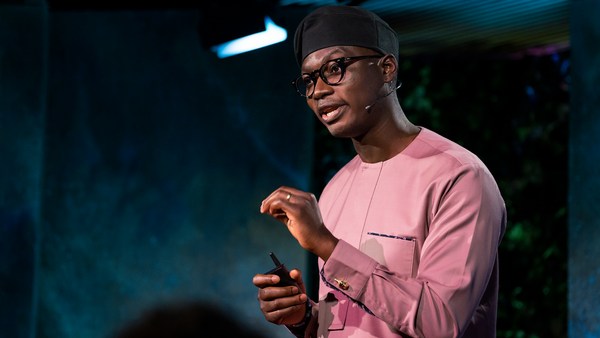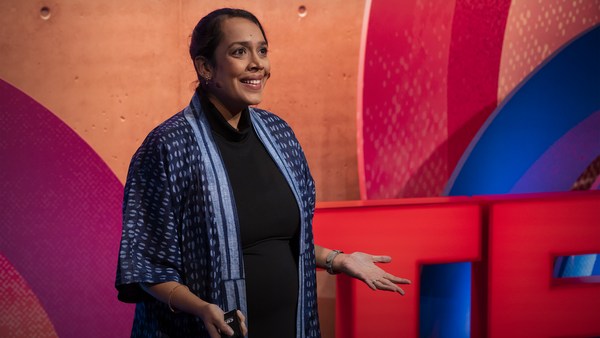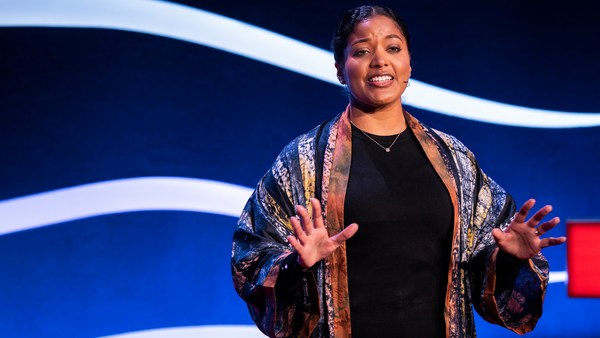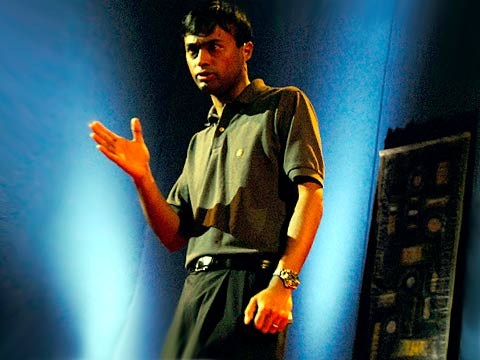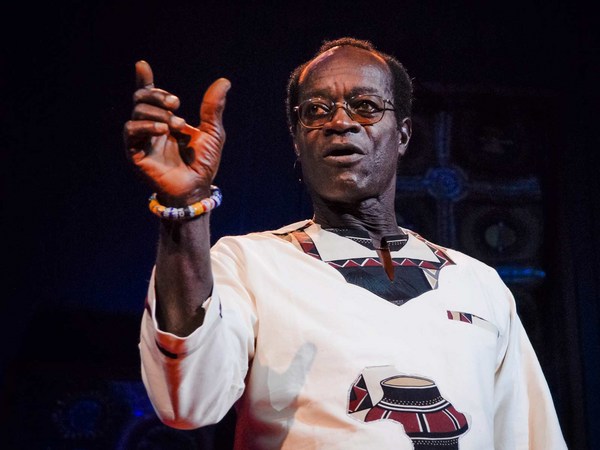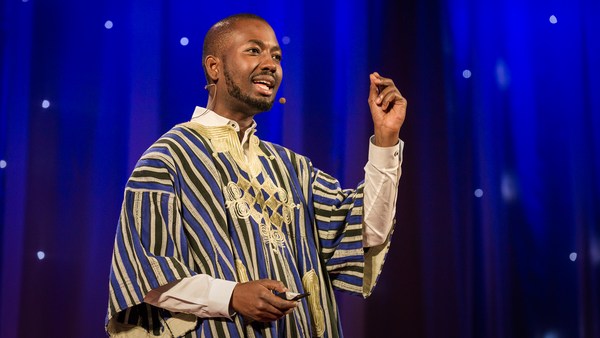So we all love a great startup story, right? Right? Audience: Yes! Good, I do too. And we particularly love the underdog ones. You know, where a small idea makes it big despite all the odds, where many giants are slayed before a resounding success. Well, I’m convinced that there’s nowhere where this narrative is more captivating or where it echoes more profoundly than in the countries and communities of Africa.
Africa has been portrayed over and over again through the lens of outdated myths. The world only sees us as a continent that's plagued by poverty, insecurity and stifled innovation. You know, a land of endless potential that forever remains unrealized. But yet, underneath these tired stereotypes, a new reality has emerged, one where ambitious Africans are writing their own stories as builders and as innovators.
We have the youngest population in the world, with over 60 percent under 25. And this youthful energy, combined with increasing access to technology as we see it today, has become the perfect recipe for a tech revolution. We are no longer waiting for the future. We are actively constructing it.
See, our greatest resource is not the gold, the oil, the diamonds, the platinum. It has always been the people.
How do I know this? I spent the last couple of years bringing African tech talent, founders and funders together through events I organize. And also hosting a series on YouTube called Founders Connect. Through Founders Connect I have interviewed over 80 African tech entrepreneurs who shared their stories with me, their lessons, their challenges, their victories.
So I'll tell you some of those stories. One of that is one of Nigeria's tech matriarchs. Her name is Funke Opeke. We call her Auntie Funke. She's the founder of MainOne, and in 2008, she decided to tackle the issue of internet connectivity in Nigeria, and she ended up laying the first privately owned undersea cable in West Africa, stretching 7,000 kilometers, all the way from Portugal in Europe to West Africa. This bold move resulted in a surge of internet speeds in the country. For context, the earlier cables had 800 gigabytes in capacity, but one laid by MainOne came with ten terabytes. That was over 1,000 percent increase in capacity. The result? An explosion of tech startups in Nigeria that have now become the lifeblood of our economy.
This initial trickle that started at the time of Auntie Funke kept growing into a massive current of new startups by mid-to-late 2010s. An example is another of my favorite stories, PiggyVest. It's the first online savings and investment app in Nigeria, and it was founded in 2016 by Somto Ifezue, Odunayo Eweniyi and Joshua Chibueze. And they are serial entrepreneurs. PiggyVest has helped over 4.5 million Nigerians to save well over 1.4 billion dollars. That's a lot of money. Imagine the impact they have made in the lives of people.
And the momentum kept going and going and going even further in 2020, when Paystack, a company that helps businesses get paid easily online, became one of Africa's biggest startup stories. The founders, Ezra Olubi and Shola Akinlade, were the first Nigerians to get into Y Combinator. And in 2020, when they sold their company to Stripe for 200 million dollars, I mean, they made a lot of money for themselves, obviously, but also they returned 1,400 percent ROI to their early backers, many of whom were local investors in the country, thus giving money back to the ecosystem that has allowed them to invest in more companies. And they sparked a renewed belief in just how big Nigeria's companies could go.
I think if the early pioneers like Auntie Funke lit a spark, what Paystack did was that it set a raging fire across the entire Nigerian ecosystem. Because their acquisition did not just raise headlines. It also resulted in the Paystack Mafia, similar with the PayPal Mafia. Very similar, as they've gone to create iconic companies. There are now at least 10 former Paystack staffers that have spun out their own ventures. They’re building fantastic solutions in open banking, tech talent outsourcing. They're building fintech neobanks. They're building on-demand food and grocery solutions. They're basically pushing the boundaries of what is innovation in Africa.
15 years ago, the tech in Nigeria was so nascent that people say it was practically nonexistent. But I kid you not, if you walk through the streets of Lagos today, you see a ton of young people who are attending TED conferences, who are collaborating in coworking spaces, who are brainstorming ideas in cafes.
And let me be clear, let's not make a mistake. This entrepreneur awakening I'm talking about is not a localized event. It's a Pan-African revolution. Because what is happening in Lagos today, it's happening across the entire continent. In East Africa, there are companies like Twiga Foods that is connecting consumers, vendors and suppliers to high quality products, food and retail services. There are fintech businesses like Kopo Kopo, that is helping other businesses accept digital payments easily, while also providing access to credit. In South Africa, companies like Stitch are pushing the frontiers in areas like open banking.
The world views Africa from a place where our struggles are amplified but then our victories are minimized. The result is everyone is missing this reality of a continent of doers, of creators, of builders. And I'm not just talking about local players who only build regional solutions. Because the builders of my generation, we have the boundless ambition, but also the ability to build technological powerhouses that will put Africa on the global stage, just like our music Afrobeat is doing.
So brace yourselves. I don’t think it will be long anymore before we stop comparing African startups to their Western counterparts, but Western companies will begin to benchmark themselves against the wave of unicorns that's coming out of the African soil.
Thank you.
(Applause)
Thank you.
